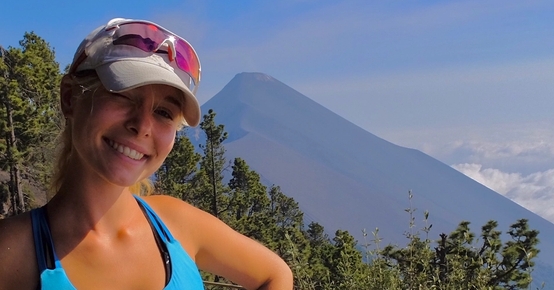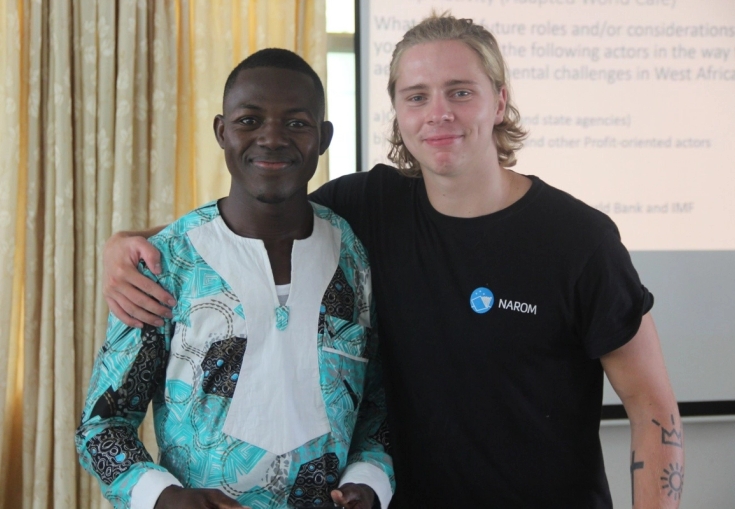
Study spanish in Costa Rica
Forthcoming semesters:
Do you already know some Spanish and want to improve or become fluent in the language?
As a student in Costa Rica, you get the opportunity to practice the language every day. In addition to Spanish, we offer the exciting elective course Sustainability and Nature Conservation.
This program is suitable for those who already speak basic Spanish.

Practical details
- Application deadline:
- 5 August or 1 December
- Forthcoming semesters:
- 18 August or 19 January
- Duration:
- 16 weeks in Costa Rica
- Time and date:
- Choose: Autumn or spring
- Programme fee:
- 7500
- ECTS:
- 30 ECTS
- Included:
- Study programme, accommodation, lunch on teaching days
About the programme
As a Spanish student in Costa Rica, the curriculum becomes a part of daily life.
Our skilled teachers provide you with the tools you need to make significant progress, and if you take the initiative to get to know the people and culture of the country, you will be amazed at how quickly you improve.
Through group lessons and excursions, the goal is for students to explore the language together.
During a 5-week stay with a host family, you get a unique opportunity to become familiar with the language and culture.
Read about life as a Spanish student in a host family
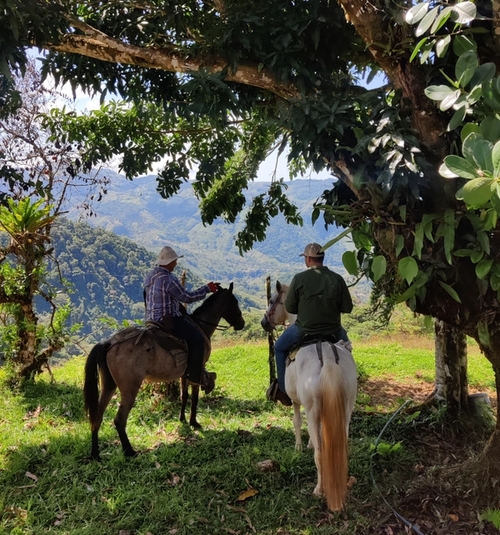
- Costa Rica
- Student blog
Hvordan er det å bo i vertsfamilie?
Why choose Spanish in Costa Rica?
Learn to master a world language
Study Spanish in a Spanish-speaking country
Get up close with Costa Rican locals and culture
Gain international experience and Norwegian study credits
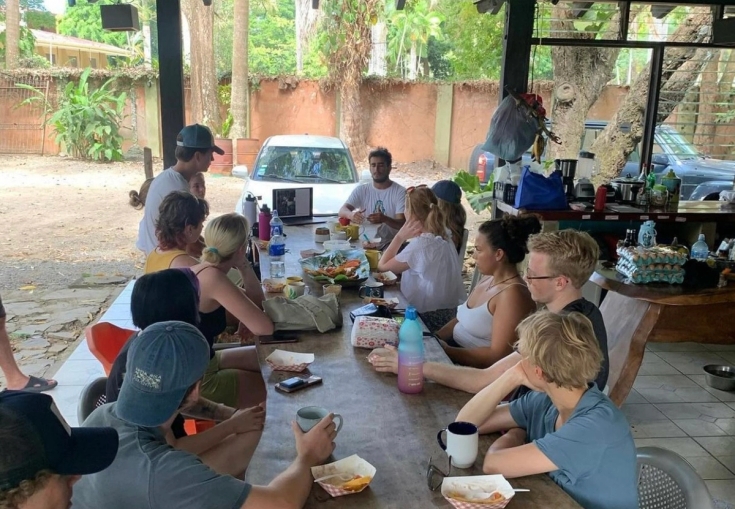
Stay with a host family and learn more!
Included in the stay is a 5-week homestay with a host family.
By living with a Costa Rican family, you will improve your language skills, become more familiar with the local culture, and grow as a person. You will stay with the family along with another student.
You will experience both the challenges and joys of being an outsider, and learn to adapt to different norms than you might be used to.
You get to practice Spanish every single day, and perhaps you'll make friends for life?
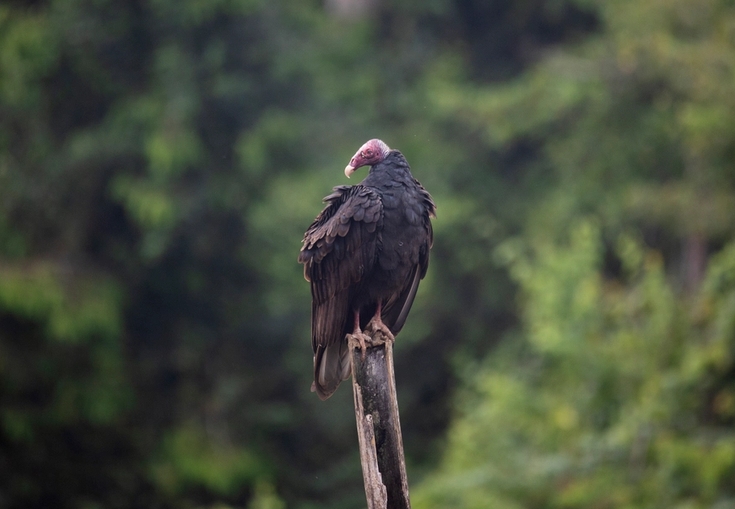
Learn about sustainability and conservation
Spanish constitutes the main part, three quarters, of the instruction.
In addition to Spanish, we offer the exciting subject of sustainability and environmental protection, which constitutes one quarter.
Here you will learn about climate change, forestry and agriculture, conservation and restoration of ecosystems, and how local businesses can operate sustainably and profitably. Excursions and outings are a central part of the course's teaching.
Costa Rica is the perfect place to learn about environmental conservation, with its vast amounts of protected nature and exceptional biodiversity.

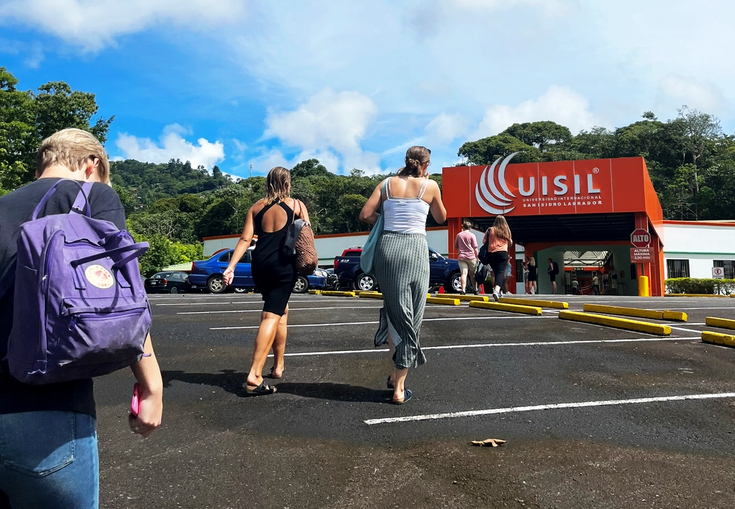
Career opportunities
Language proficiency is sought after in many parts of the working life.
Regardless of whether you're going to work as a teacher, nurse, retail associate, or in academia, it will be beneficial to know a language that so many people speak.
If you want to live in a Spanish-speaking country in the future, your language skills will make it easier to get a job in the country.
If you want to work in an international company, Spanish skills can create exciting opportunities for you.
Meet the staff in San Isidro

Raquel Bolaños
Raquel Bolaños is the Manager for our programs in Costa Rica, is a San Isidro native with a deep passion for visual arts and water protection. Her Master's degree in Environmental Studies from York University, coupled with experience in experiential learning programs. Raquel is dedicated to supporting students throughout their transformative educational journey.

Andrés Valverde
Andrés is the manager for the students in Quepos. He also works with administrative tasks in the office in San Isidro and collaborates with Raquel when the environmental studies group travels to San Isidro. Andrés is a trained Spanish teacher and grew up in San Isidro, so he knows the area well.
Questions and Answers
Read more about
- 1
Fill out the application
To apply for the program, fill out the application form. It is completely non-binding.
- 2
Offer of admission
Assuming there are available spots, we will send you an offer for a study place. To secure your spot, you pay a deposit of 250 EUR.
- 3
Start of studies
Before the start of your studies, you will receive information from us about all practical and academic preparations. The remainder of the tuition fee is to be paid two weeks before the start of your studies.
